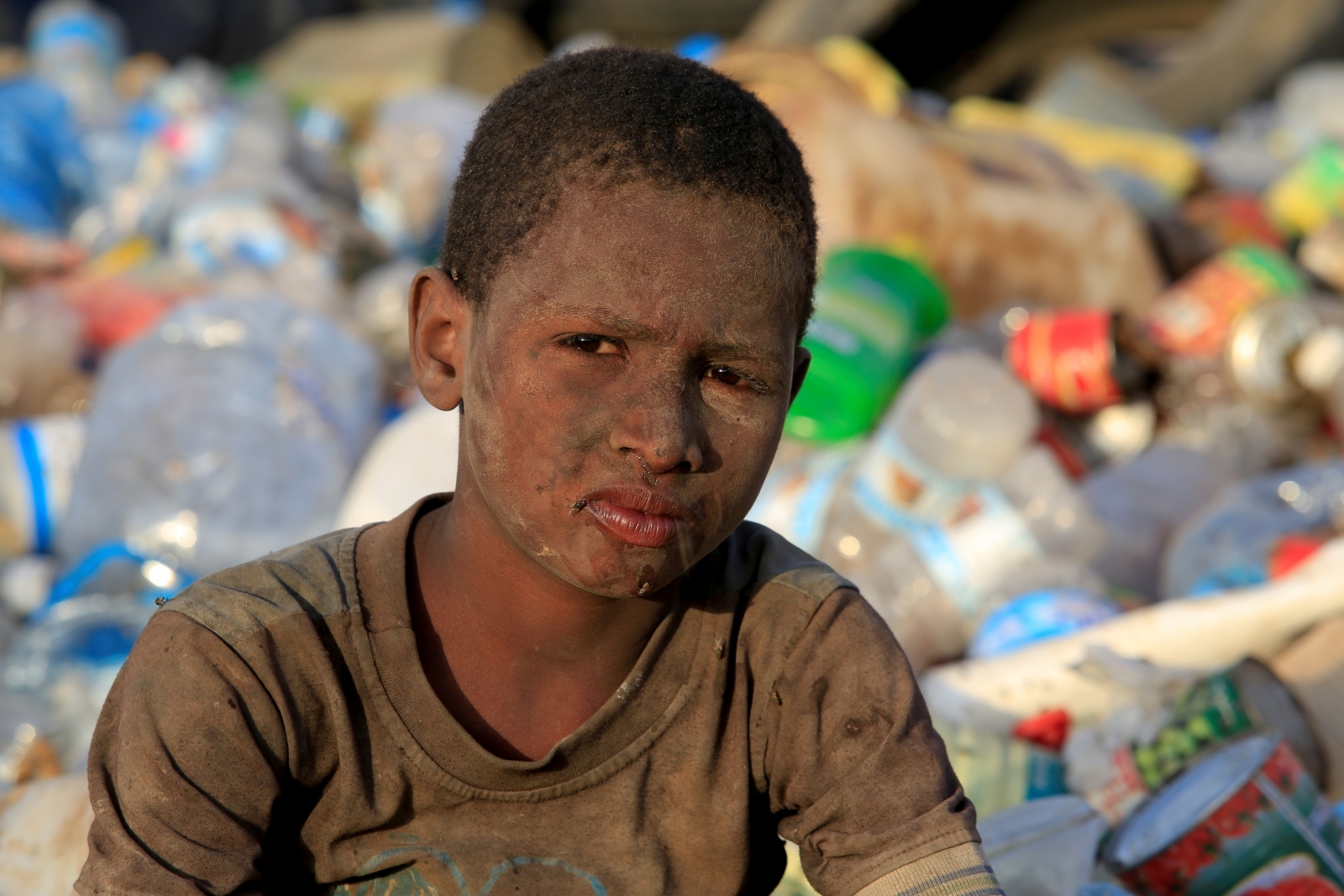Heartbreaking photos of children searching for food at a rubbish dump
"We eat and drink the food that is thrown away," 11-year-old Ayoub said. "We collect fish, meat, potatoes, onions and flour."
Terrified by persistent Saudi-led air strikes on their home area in northwest Yemen, the Ruzaiq family packed their belongings and fled to the relative safety of the port of Hodeidah on the Red Sea. However, as they had no money or relatives to shelter them, the 18-member family joined a growing number of displaced Yemenis living on or next to a huge rubbish dump on the outskirts of the Houthi-controlled city.

Reuters photojournalist Abduljabbar Zeyad followed 11-year-old Ayoub Mohammed Ruzaiq as he searched among the refuse for salvageable food. "We eat and drink the food that is thrown away," Ayoub said. "We collect fish, meat, potatoes, onions and flour to make our own food."








Despite the health risks, the dump has become a source of food for hundreds of impoverished Yemenis and given some a chance to try to earn some income.
Fatema Hassan Marouai, 53, who was driven from her home in Hodeidah by economic hardships, said that apart from picking up food thrown away by better off Yemenis, some displaced people collect metal cans and plastic bottles to sell to merchants for some cash to cover daily needs.
But she said income from that activity was also declining. Merchants who once paid up to 50 Yemeni rials (14p) for a kilogram of plastic bottles, now offer 10 rials only, she said. "We had been in a bad situation and the war made things worse," said Fatema.





For nearly three years, a Saudi-led coalition backed by the United States has been carrying out airstrikes in Yemen against Iranian-allied rebels, known as Houthis, after the rebels overran the capital of Sanaa and forced Yemen's government into exile.
The war has killed more than 10,000 civilians, displaced some two million people, caused a cholera epidemic that has killed nearly 2,000 people and pushed millions to the brink of famine. The United Nations calls Yemen the world's worst humanitarian crisis.
The Saudi-led coalition denies Houthi accusations that it targets civilians or civilian property in its operations. Riyadh sees the Houthis as a proxy militia linked to regional rival Iran. Both Iran and the Houthis deny any military cooperation.


Ruzaiq family patriarch Mohammed Ruzaiq, 67, said Yemenis were not asking for any aid from outside, just a goodwill effort to end the war. "All we want is for them to stop this war and this calamity and God almighty will provide for us," he said.






















